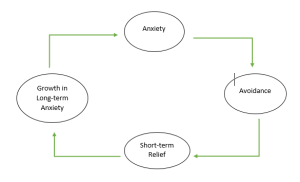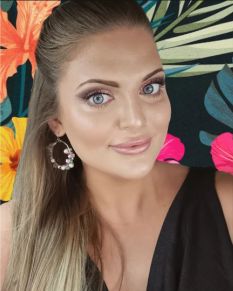How the COVID-19 Pandemic may have made your social anxiety worse
What is “Social Anxiety?”
According to the DSM-5 (The Diagnostic and Statistical Manual of Mental Disorders (5th ed.; DSM–5; American Psychiatric Association, 2013), in order to be diagnosed with “social anxiety,” you would need to experience persistent, intense fear or worry about specific social situations. This anxiety usually occurs because you believe you may be judged negatively, embarrassed or humiliated. If you struggle with social anxiety, you likely will either avoid the anxiety-inducing social situations or you will endure them, whilst experiencing intense fear or anxiety. This anxiety needs to be excessive and out of proportion to the situation and has to interfere with your daily living in order for a diagnosis to be made, as everyone can experience anxiety in social settings from time to time. Other medical conditions, medications and substance abuse should not better explain these symptoms in order for this diagnosis to be made.
The cycle of avoidance
If you struggle from social anxiety, your behaviour is likely to follow this predictable cycle pictured above. When one feels anxious, their first instinct is to avoid the thing that is generating the worry. For example, someone who is afraid of heights is very unlikely to set foot near a rollercoaster.
In much the same way, people who struggle with social anxiety are likely to make excuses to avoid having to interact with others out of fear of, what you perceive as judgement from others, and the “overthinking” that usually comes after interacting socially.
This avoidance actually works in the short term. For example, imagine you have been invited by a friend to a dinner where you will be meeting a group of their work friends. Meeting new people may make you feel an impending sense of doom and so you make the excuse that you are feeling unwell and therefore you won’t be able to make it after all. You now put on your pj’s and instead watch your favourite movie on your couch and order in. You are likely sitting there thinking: “Aaah, thank goodness this feels so much less stressful!”
However, before you know it, you may run out of excuses or have to interact socially in a situation that is completely unavoidable. For example, at a meeting at work, a presentation at University that is necessary to pass a course or being in the bridal party at your family member’s wedding.
It is likely, now that you have not interacted socially in a rather long time, that you have less social skills and coping strategies and have convinced yourself that the situation is even more catastrophic than the few interactions you avoided initially. And therefore your anxiety actually increases in the long-term.
How COVID-19 has reinforced this cycle
For the last couple of years, as a society as a whole, we have been told to stay home, interact through technology wherever possible, and cover the majority of our faces for any small human interaction that is unavoidable. Having read how the cycle of avoidance works above, can you see how this may be a recipe for disaster for the socially anxious amoung us?
Not only have avoidant behaviours been encouraged, they have at times been mandated to keep the spread of the virus under control. Whilst there are many people in society who have expressed a desire to interact as they once did prior to the pandemic, it will be important for support to be provided for anyone who may experience social anxiety.
Where to from here?
The most effective treatment for social anxiety involves cognitive strategies, exposure, and distress tolerance skills. Therefore, attending the event, giving yourself the opportunity to see that you can in fact tolerate the distress and working on your thoughts about your own and other people’s perceptions, will be the most likely key to success. As restrictions ease and more opportunities arise to interact socially once again, this may be a great time to try these strategies for the first time or even pick up where you left off prior to the start of the pandemic and try to address how COVID-19 may have made your social anxiety worse.
Author: Lauren Otto, MA Clinical Psychology
Lauren Otto is a Clinical Psychologist who primarily works with children, adolescents and adults. She has experience in many fields including emotion regulation and adjustment difficulties, as well as living with chronic pain. Her warm, non-judgemental yet practical approach to therapy fosters a positive relationship whilst allowing them to achieve their goals. Lauren also has a particular interest in Autism Spectrum Disorder.
To make an appointment try Online Booking. Alternatively, you can call Vision Psychology Brisbane on (07) 3088 5422 or M1 Psychology Brisbane on (07) 3067 9129

